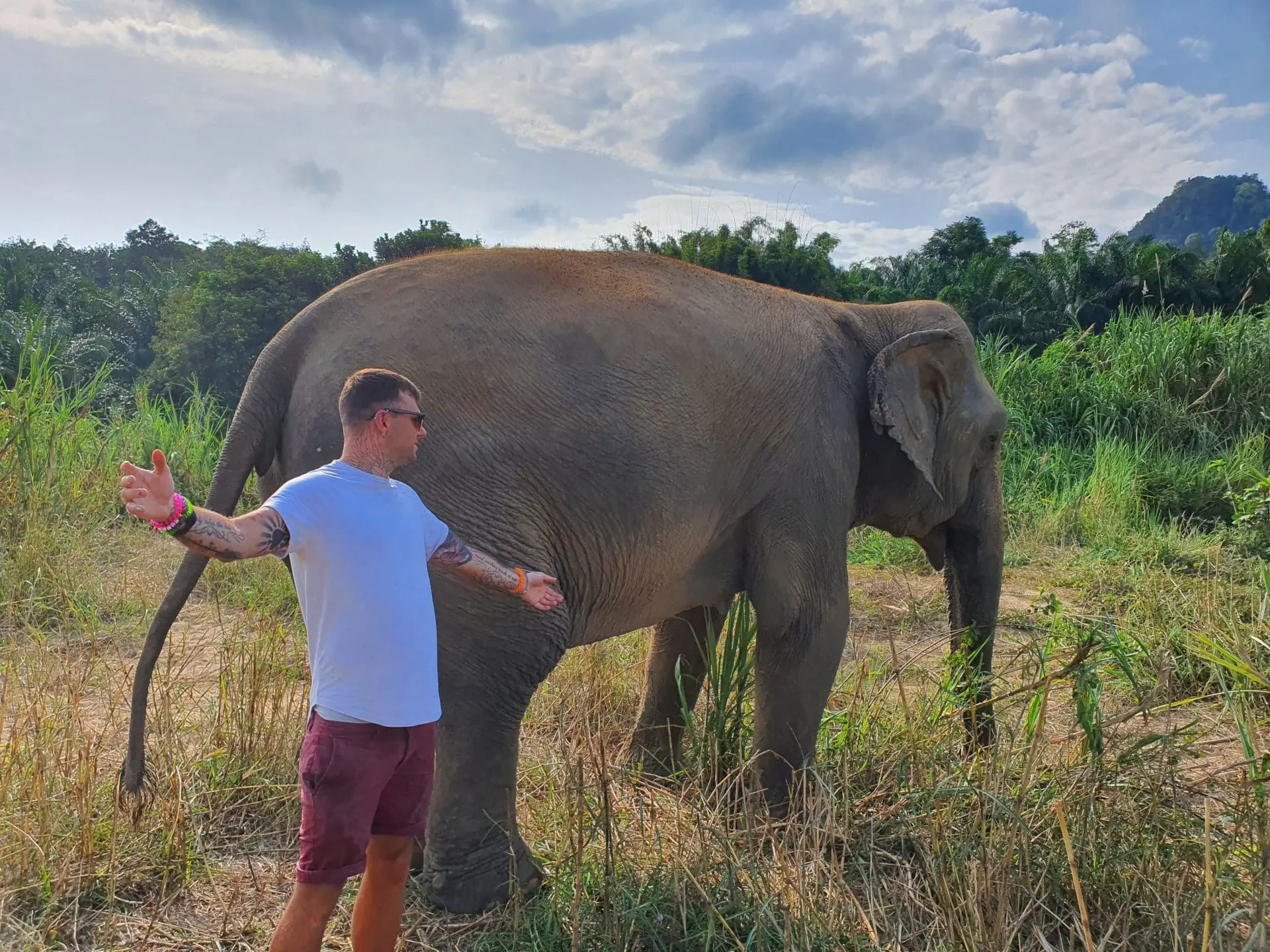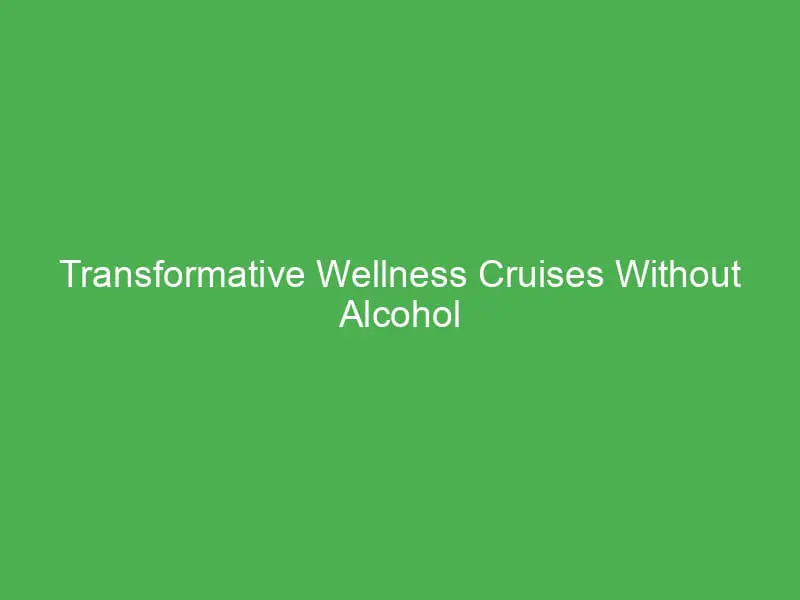Planning a group sober retreat weekend can be a transformative experience for those seeking connection and personal growth. It’s an opportunity to step away from everyday life and immerse in a supportive environment that fosters healing and camaraderie. With careful planning, this retreat can become a memorable journey for everyone involved.
This blueprint will guide readers through each step of creating a successful sober retreat, from selecting the perfect location to crafting engaging activities. By focusing on community-building and self-discovery, participants can leave with renewed energy and lasting friendships. Whether it’s a weekend getaway in nature or a serene escape in a tranquil setting, the right planning can make all the difference.
Overview of Blueprint: Plan a Group Sober Retreat Weekend
Planning a group sober retreat weekend involves several structured steps that promote connection and personal growth. This blueprint focuses on creating a supportive environment to facilitate healing and camaraderie among participants.
Key Components of Planning a Sober Retreat
- Define Objectives
- Establish clear goals such as fostering community, encouraging self-reflection, or promoting well-being.
- Select a Suitable Location
- Choose venues that promote tranquility, such as cabins in the woods, beachside resorts, or dedicated retreat centres. Ensure accessibility and comfort for all participants.
- Create a Balanced Itinerary
- Incorporate a mix of activities like guided meditation, group discussions, and creative workshops.
- Include time for personal reflection and outdoor activities to enhance relaxation.
- Engage Qualified Instructors
- Recruit facilitators with experience in hosting sober retreats or leading wellness activities. This expertise enriches the experience for participants.
- Plan Nourishing Meals
- Provide healthy, balanced meals that support energy and wellness. Consider dietary restrictions and preferences, offering a variety of options.
- Encourage Open Communication
- Foster a safe space for sharing thoughts and feelings. Encourage participants to express themselves in group settings and one-on-one conversations.
- Designate Chill-out Zones
- Set up quiet areas for solitude and relaxation. Provide comfortable seating and resources like books or art supplies for creative expression.
- Implement Reflection Practices
- Incorporate daily check-ins or journaling sessions to help participants process their experiences and reflect on personal growth.
- Offer Support Resources
- Provide access to material such as recovery literature, mindfulness resources, or contacts for professional support if needed.
- Evaluate and Gather Feedback
- After the retreat, collect feedback from participants to understand successes and areas for improvement. Use this insight for future planning.
By following this blueprint, organisers can craft a meaningful and enriching sober retreat experience, enhancing connections and fostering long-lasting friendships among participants.
Importance of a Sober Retreat
A sober retreat offers numerous advantages that enhance the overall experience of participants while fostering a supportive atmosphere conducive to growth. Emphasising connection and healing, these retreats provide a powerful setting for individuals seeking recovery or growth.
Benefits for Participants
Participants experience several key benefits during a sober retreat, including:
- Enhanced Wellbeing: Retreats focus on mindfulness and self-care, promoting mental and emotional health.
- Community Building: Shared experiences foster deep bonds among participants, resulting in lasting friendships.
- Personal Growth: Engaging in self-reflection promotes individual insight and empowers participants to pursue their goals.
- Skill Development: Workshops and guided activities offer tools and resources for maintaining sobriety and improving coping mechanisms.
- Disconnection from Triggers: A retreat environment allows participants to step away from daily stressors, reducing the likelihood of relapse.
Impact on Group Dynamics
- Increased Trust: Participation in open discussions cultivates trust and safety among group members.
- Shared Accountability: Participants motivate each other, reinforcing commitments to sobriety and personal goals.
- Improved Communication: Engaging in structured activities fosters effective communication skills, enhancing group interactions.
- Collective Healing: Group activities facilitate shared emotional experiences, which can aid in healing the collective trauma of addiction.
- Diverse Perspectives: Interaction among varied backgrounds enriches the dialogue, promoting empathy and understanding within the group.
Step-by-Step Planning Process
Planning a group sober retreat weekend involves several key steps to ensure a supportive and enriching experience for all participants.
Identifying Objectives and Goals
Setting clear objectives and goals enhances the retreat’s focus. Consider the following:
- Personal Growth: Foster self-discovery through activities like workshops and discussions.
- Connection: Build relationships among participants with team-building exercises.
- Skill Development: Introduce new coping strategies through expert-led sessions.
- Reflection: Encourage introspection and mindfulness practices.
Defining these goals allows for targeted programming, ensuring that participants leave with tangible benefits.
Selecting the Right Location
Choosing the appropriate location is crucial for creating a calming atmosphere. Key factors include:
- Natural Surroundings: Opt for serene environments such as forests, beaches, or mountains.
- Accessibility: Ensure the venue is reachable for all participants, considering transportation options.
- Amenities: Look for facilities that accommodate group activities, provide comfortable lodging, and offer healthy dining options.
- Safety: Prioritise locations that maintain a sober-friendly environment free from potential triggers.
These considerations contribute significantly to the overall success of the retreat.
Creating an Engaging Itinerary
An engaging itinerary balances structured activities with free time. Important components are:
- Diverse Activities: Include guided meditations, yoga classes, and group discussions.
- Social Opportunities: Plan group meals and evening activities to foster camaraderie.
- Flexibility: Allow downtime for personal reflection and rest, catering to individual needs.
- Wellness Workshops: Offer sessions on stress management, assertiveness, and self-care techniques.
This structure supports both personal and collective growth, enhancing the retreat’s impact.
Budgeting and Funding
Establishing a comprehensive budget is essential for financial responsibility. Key considerations include:
- Venue Cost: Allocate funds for lodging, amenities, and facilities.
- Food and Beverages: Budget for nutritious meals that cater to dietary needs and preferences.
- Activity Expenses: Include costs for instructor fees, workshops, and printed materials.
- Transportation: Plan for group transport arrangements if necessary.
Funding may come from participant contributions, sponsorships, or fundraising initiatives, ensuring the retreat’s viability while maintaining quality experiences.
Promoting the Retreat
Promoting a group sober retreat requires strategic planning and a clear understanding of the target audience. Effective communication and outreach enhance visibility and participant engagement.
Marketing Strategies
- Utilise Social Media: Platforms like Facebook, Instagram, and Twitter provide channels to reach potential attendees. Create visually appealing posts showcasing the retreat’s purpose and benefits.
- Develop a Website: A dedicated website presents essential information, schedules, and registration forms. Incorporate testimonials from past participants for credibility.
- Leverage Email Marketing: Build an email list of interested individuals and organisations. Regular updates about the retreat’s preparations and reminders can encourage sign-ups.
- Collaborate with Influencers: Partner with sober influencers or recovery advocates to promote the retreat, broadening its reach.
- Attend Community Events: Engaging with local recovery communities and wellness fairs can raise awareness and attract participants.
Engaging Potential Participants
- Offer Informational Meetings: Hosting online webinars or local meet-ups can foster interest and provide a platform for potential participants to ask questions.
- Share Compelling Content: Create blog posts, articles, or videos that highlight the retreat’s activities, benefits, and personal growth stories.
- Utilise Early Bird Discounts: Offering reduced rates for early registration can incentivise quick sign-ups.
- Facilitate Group Registrations: Encourage friends or support groups to attend together, enhancing communal support during the retreat.
- Post Engaging Multimedia: Use photos, videos, and live testimonials from previous retreats to illustrate the experience and atmosphere potential attendees can expect.
Essential Takeaways for Planning a Group Sober Retreat
- Define Clear Objectives: Establish goals such as promoting community, self-reflection, and overall well-being to guide the retreat’s focus and activities.
- Choose an Ideal Location: Select serene and accessible venues that foster a calming environment, essential for enhancing participants’ experiences.
- Design a Balanced Itinerary: Create a mix of structured activities and personal downtime, ensuring engagement and opportunities for reflection throughout the retreat.
- Recruit Experienced Instructors: Engage qualified facilitators to lead sessions, enriching the retreat experience through their expertise and support.
- Foster Open Communication: Encourage a safe space for participants to express themselves, vital for building trust and promoting collective growth within the group.
- Evaluate and Gather Feedback: After the retreat, collect participants’ insights to understand successes and areas for improvement, ensuring future experiences are even more beneficial.
Conclusion
Planning a group sober retreat weekend offers a unique opportunity for individuals to connect and grow in a supportive environment. By following the outlined steps and prioritising key elements like location, activities, and communication, organisers can create a memorable experience that fosters personal development and community building.
The benefits extend beyond the retreat itself, as participants often leave with enhanced wellbeing and valuable skills. By embracing the journey of planning and executing a retreat, individuals can cultivate lasting friendships and a sense of belonging that supports their sober journey. With careful consideration and a clear vision, a successful retreat can become a transformative experience for all involved.
Frequently Asked Questions
What is a sober retreat weekend?
A sober retreat weekend is a structured event designed to foster personal growth and connection among individuals seeking a drug-free environment. It offers a supportive space for healing and camaraderie, helping participants disconnect from daily triggers and engage in meaningful experiences.
How do I plan a successful sober retreat?
To plan a successful sober retreat, start by defining clear objectives and selecting an appropriate location. Create a balanced itinerary that includes a mix of activities, such as guided meditation and group discussions. Ensure you engage qualified instructors and provide nourishing meals while encouraging open communication among participants.
Why are sober retreats beneficial?
Sober retreats offer numerous benefits, including enhanced wellbeing through mindfulness, community building via shared experiences, personal growth through self-reflection, and skill development in workshops. They also help participants disconnect from daily triggers, creating an ideal environment for self-discovery and rejuvenation.
What should the retreat itinerary include?
The retreat itinerary should include structured activities, such as wellness workshops and guided discussions, balanced with free time for relaxation. Incorporating diverse activities and social opportunities allows participants to connect and engage meaningfully, enhancing their overall experience.
How can I promote a sober retreat?
Promoting a sober retreat can be achieved through strategic planning. Utilise social media, create a dedicated website, and leverage email marketing. Attend community events and collaborate with influencers to raise awareness while hosting informational meetings to engage potential participants.
Looking for more sober travel inspiration? Find your next adventure on our Homepage.
How can I ensure a supportive environment during the retreat?
Creating a supportive environment involves fostering open communication among participants and ensuring that qualified instructors lead activities. Designating chill-out zones for relaxation and implementing reflection practices can also promote a sense of safety and camaraderie throughout the retreat.
What factors should I consider when choosing a location?
When choosing a location for the retreat, consider natural surroundings that foster calmness, accessibility for participants, available amenities, and overall safety. The right setting can significantly enhance the retreat experience and encourage personal growth.
How can I evaluate the retreat’s success?
To evaluate the retreat’s success, gather feedback from participants through surveys or discussions. Assess their experiences and listen for constructive criticism, which can inform improvements for future events and ensure that objectives were met effectively.
What is the importance of qualified instructors at the retreat?
Qualified instructors play a crucial role in guiding participants through activities and discussions, ensuring that the retreat runs smoothly and effectively. Their expertise helps create a safe and supportive environment, facilitating personal growth and development throughout the retreat experience.
How can I budget for the retreat?
Budgeting for a retreat involves creating a comprehensive plan that covers all expenses, including venue costs, food, activities, and transportation. Research potential funding sources to help manage costs and ensure the retreat is financially viable for all participants.

Quit drinking on 23 July 2021 after a two-day bender and swapped bars for border crossings and 12-step meetings. Three sober years, 36 countries, 113 travellers (totally dry), fuelled by street food, jelly babies, and a broken Google Maps app. Wandersober is my journal, my SEO lab, and my mission. Featured in GQ, Mirror, Evening Standard, MarketWatch, and more.







